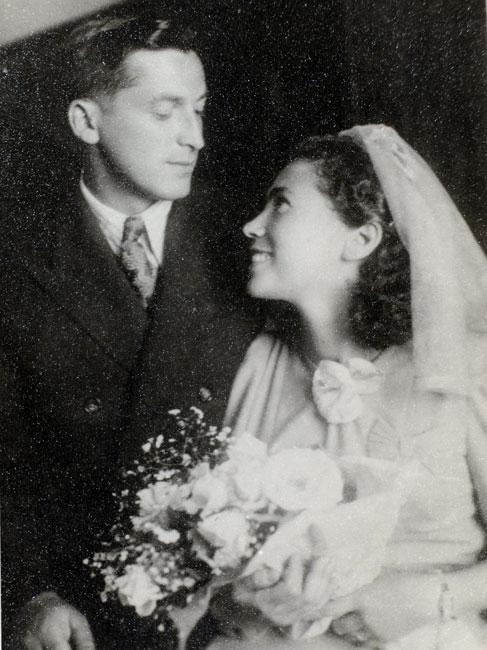

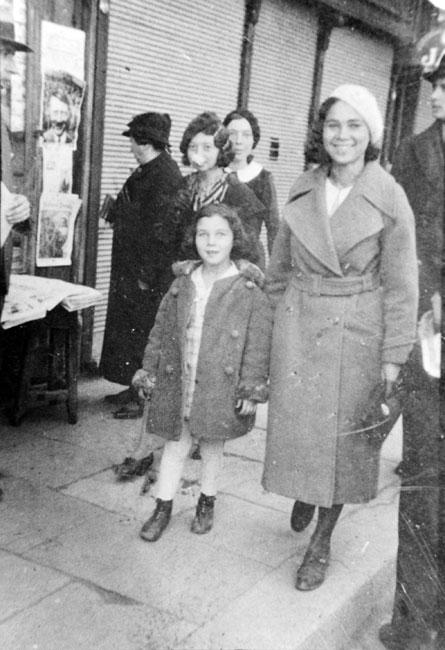

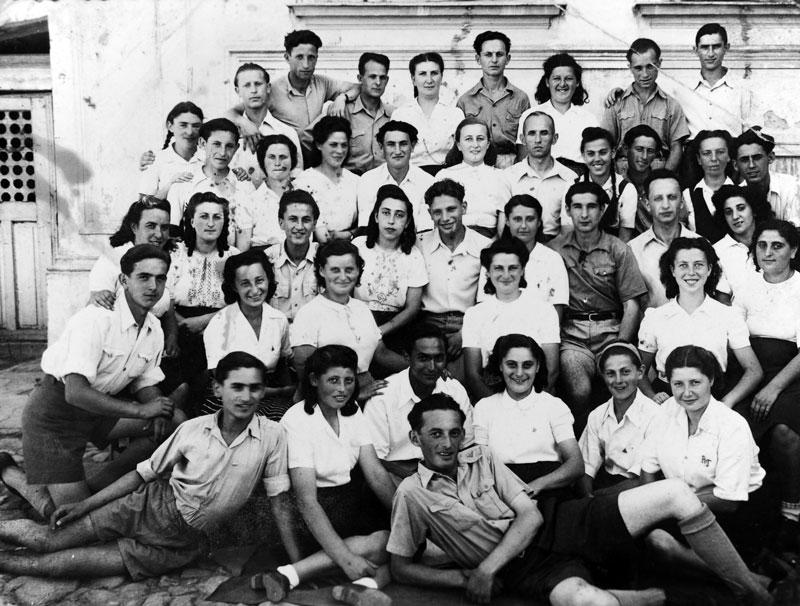

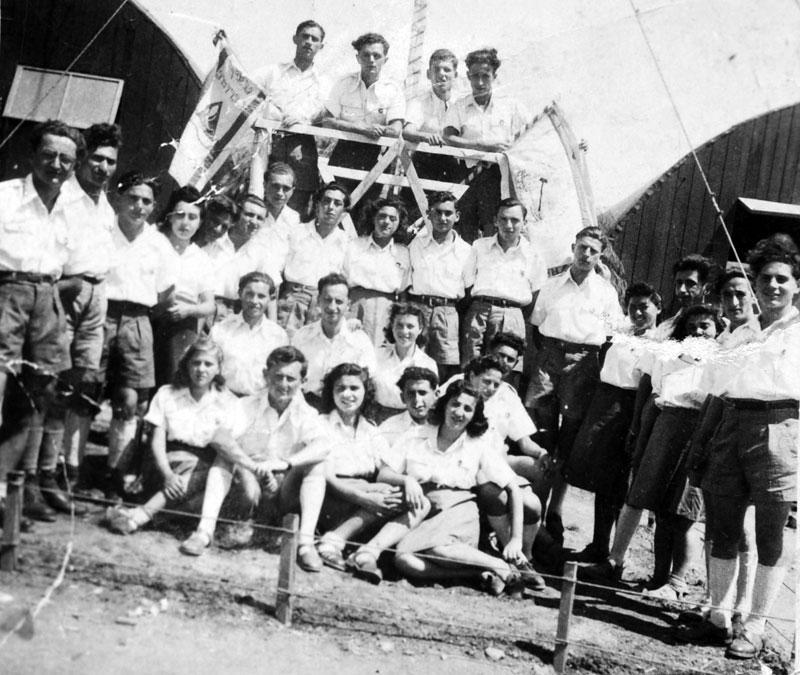

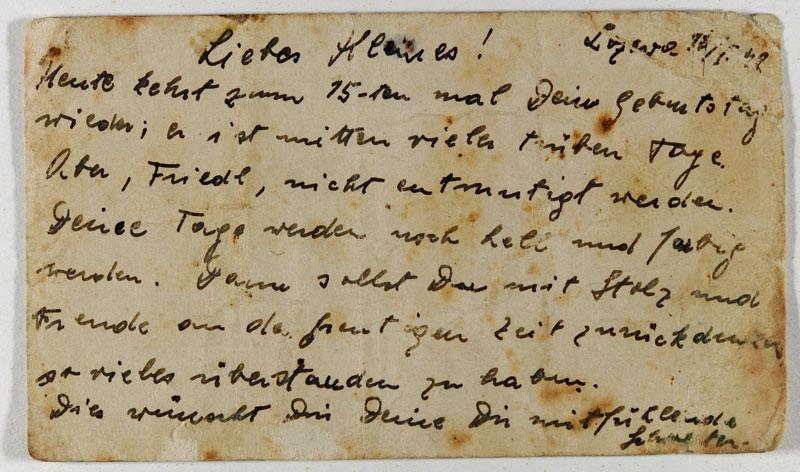

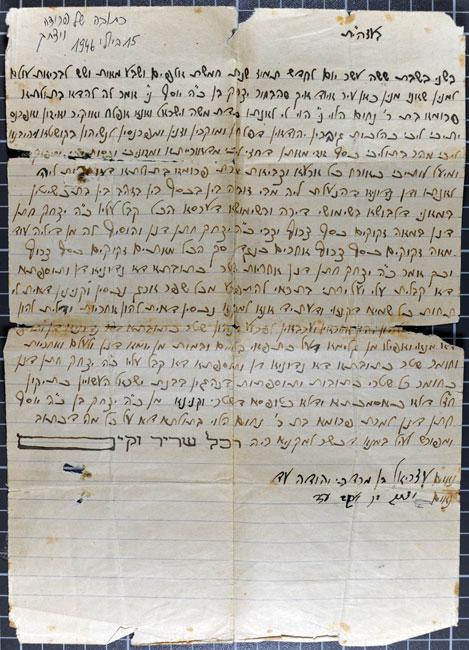

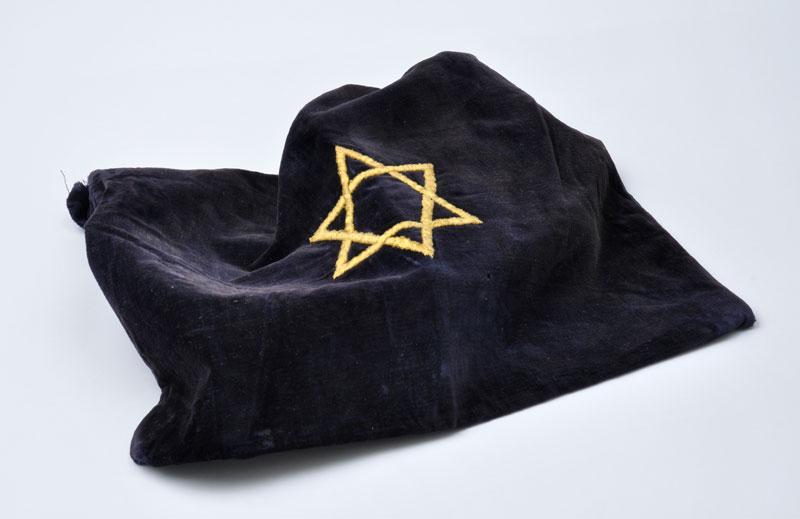

Sunday to Thursday: 09:00-17:00
Fridays and Holiday eves: 09:00-14:00
Yad Vashem is closed on Saturdays and all Jewish Holidays.
Entrance to the Holocaust History Museum is not permitted for children under the age of 10. Babies in strollers or carriers will not be permitted to enter.














Frida was born on 16 January 1927, in Cernăuţi in Bukovina, Romania (today Ukraine), the youngest daughter of Nuchim and Fanny née Picker and a sister to David (b. 1911), Anna (Chanale, b. 1913) and Saly (b. 1919).
Her father was a shoemaker who was active in the Zionist movements in Cernăuţi. Despite the family’s difficult financial circumstances, Frida began studying Hebrew with a private teacher when she was seven years old. From a young age, her sisters worked to help support the family. Her brother David left Cernăuţi to join the army; his fate was unknown for ten years. Only after the war did they learn that he had survived and immigrated to Eretz Israel.
In June 1940 the Soviets occupied Cernăuţi. The Red Army provided work for the local inhabitants, improving the family’s financial situation. Frida’s sister Anna was finally able to marry her fiancé Itzhac Gelless, after many years in which they did not have the resources to do so. Frida donated the photographs from Anna and Itzhac’s wedding to Yad Vashem.
In July 1941, the Soviets retreated and Cernăuţi was occupied by the Romanians and Germans. During the festival of Succot (Tabernacles) in October 1941, the Jews of Cernăuţi were forced into a ghetto. Frida’s family, together with other family members, moved into the home of a relative who already lived within the area demarcated as the ghetto. Many Jews, including Frida’s aunt, were murdered on the banks of the River Prut.
When the deportation of the Jews from the ghetto to Transnistria began, Jews of means were able to pay for the privilege of remaining in the ghetto. Itzhac’s wealthy parents offered Anna the chance to stay with them in Cernăuţi, but Itzhac was serving in the army and she decided to go with her family. In November 1941 the family was deported on a train to Atachi, and from there the family members walked for days, in cold and snow, until they reached the Dniester River. They were robbed by gangs along the way; the pot that had been hanging from Frida’s backpack all the way from Cernăuţi was stolen.
The family crossed the Dniester River by raft and reached Mogilev, where they were incarcerated in a large army barracks. Many Jews were beaten by Romanian soldiers, among them Frida’s mother, an ill and elderly woman. Her father bribed one of the guards, and the family left the barracks and found some other relatives. They stayed with a Ukranian family and a short while later traded some of their belongings for the right to live in a Jewish family’s home.
Mogilev quickly filled with Jewish refugees, and the deportations from the city began. That winter, the family started walking eastward, in deep snow. Frida’s two sisters were frail and her mother was ill; as Frida and her father were the strong members of the group, they carried most of the weight. At the end of a 48-hour march they reached a granary, where they stopped. Two days later they were evicted. They marched about 50km until they reached the village of Lozovaya; some people collapsed along the way and others were shot.
In Lozovaya, the family chanced upon the home of the Schargorotzkys, one of the two Jewish families living in the village. They rented a small room into which they crowded fourteen people: Frida, her sisters, parents, her mother’s sister and brother-in-law, her father’s sister and brother-in-law with their two children and grandson and brother-in-law (Frida’s father’s sister’s brother-in-law).
The family struggled to find food and firewood for heating their room; they went hungry and slept on the floor in the bitterly cold Ukrainian winter. Frida knitted waistcoats, which she traded with the locals in exchange for potatoes. Together with her father, she gleaned abandoned produce in the fields after the harvest had been gathered in. Frida also attended Christian memorial ceremonies, as the local custom was to distribute food to the poor on such occasions.
Frida and her sister Anna had a close, loving relationship. In January 1942, Anna wrote a message for her sister on her birthday;
My beloved little one, Lozovaya (village name),
Today, your birthday comes for the fifteenth time
But it is tied to many rainy days,
But Friedl, don’t despair. Your days will be clear and colorful again,
So remember with pride that you were able to overcome so many hardships,
Your loving sister who is together with you in these hard times, Anna
The hunger, cold and overcrowding brought about an outbreak of typhus. Frida’s aunt Frime Hochstadt was the first in the family to succumb. Later, Anna too fell ill. Her condition deteriorated and about two months after writing the birthday greeting, she died on the Fast of Esther (2 March 1942). She passed away while lying next to Frida, who was trying to feed her cocoa from a teaspoon, a drink that they had been given by their host family because of the severity of Anna’s condition. Frida donated Anna’s letter to Yad Vashem for posterity.
Frida’s uncle, and eventually her mother Fanny died too. In the days before her death, Fanny couldn’t speak. Believing that lice were bothering her mother, Frida repeatedly washed her head. Her mother couldn’t speak, but her eyes expressed her gratitude.
Fearing the spread of typhus, the family asked one of the uncles who refused to delouse himself to leave. In 1943, Saly fell ill. Frida obtained special food for her and Saly survived.
In 1944 the region was liberated. The surviving family members, Frida, Saly, their father, their aunt and her children and another uncle, remained in Mogilev while Sally recovered and regained her strength. When her condition had sufficiently improved they made their way back to Cernăuţi.
In Cernăuţi Frida returned to school. In 1946 the Soviets opened the border for those who wanted to return to Romania. In the knowledge that it was possible to immigrate to Eretz Israel from Romania, the family chose to cross the border. In the city of Siret, Frida heard about a training camp to prepare for immigration to Eretz Israel. She and Saly went to Bucharest to join the Hachshara (training) camp run by Habonim Dror. There Frida met Izu Braunstein. Frida and Izu journeyed to the Transylvanian village where Frida’s father Nuchim lived so that they could get married in his presence, as he had asked that they should married before moving to Eretz Israel. Frida donated her Ketubah (marriage certificate) to Yad Vashem; it had been written on a piece of paper by a local Jew.
The newly-married couple returned to Bucharest, and at the end of 1946 boarded the illegal immigration ship, the Knesset Israel. The British intercepted the ship and interned the passengers in Cyprus. In the summer of 1947, they immigrated to Eretz Israel together with the rest of the group from Habonim Dror. After two months in Atlit they moved to Givat Brenner. Frida’s father Nuchim and her sister Saly immigrated to Israel in 1950.
The items that Frida donated to Yad Vashem had journeyed with the family from Cernăuţi to Transnistria, back to Cernăuţi and via Romania to Israel.
The items included Anna’s diary and a tallit (prayer shawl) bag that she had made for her father. The diary, written in German, is from the years in which she was engaged to Itzhac Gelless; the entries are written as letters to him. A professional embroiderer, Anna had made the bag for her father in 1937. His initials are embroidered on the tallit bag that he proudly carried to synagogue before the war.
Frida had decided to take family’s photograph album when they were packing their belongings before moving to the Cernăuţi ghetto. Despite her young age and being the youngest in the family, it was Frida who took care of the album.
Throughout, Frida had carried the photograph album and diary on her person, tied to her chest. The tallit (prayer shawl) bag was brought to Israel by her father.

Thank you for registering to receive information from Yad Vashem.
You will receive periodic updates regarding recent events, publications and new initiatives.

"The work of Yad Vashem is critical and necessary to remind the world of the consequences of hate"
Paul Daly
#GivingTuesday
Donate to Educate Against Hate


Worldwide antisemitism is on the rise.
At Yad Vashem, we strive to make the world a better place by combating antisemitism through teacher training, international lectures and workshops and online courses.
We need you to partner with us in this vital mission to #EducateAgainstHate
The good news:
The Yad Vashem website had recently undergone a major upgrade!
The less good news:
The page you are looking for has apparently been moved.
We are therefore redirecting you to what we hope will be a useful landing page.
For any questions/clarifications/problems, please contact: webmaster@yadvashem.org.il
Press the X button to continue



